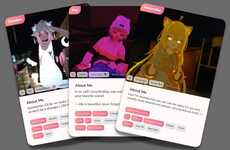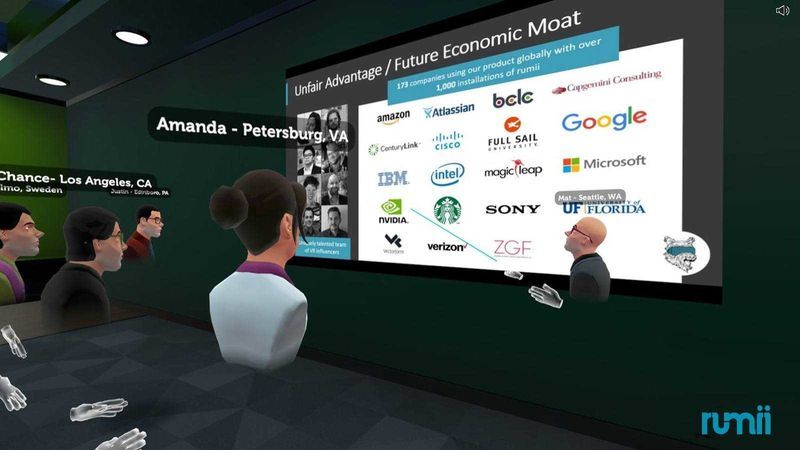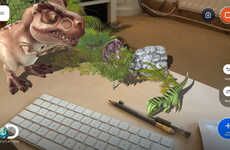
Full Sail is Using the Rumii App to Help Online Students Better Interact in Class
Justin Lam — April 24, 2018 — Social Good
Full Sail University is often cited as a forward-thinking school, and its newest use of the Rumii app is aiming to make online classes less of a solitary experience. At its core, the app is a teleconferencing suite but the twist is in its native VR nature. By utilizing a VR space students can create customizable avatars to inhabit a meeting space and allows them to see other participants' avatars. Within the app users can share documents, give presentations and browse the web on a virtual screen. The Rumii app was developed by Doghead Simulations, who are also working on a mobile VR version of the app.
This innovative app has already been used in some professional settings, but a recent partnership with Full Sail University is seeing the app's use for education. The idea is to use the VR space to simulate a lecture hall and directly interact with the instructor rather than viewing the lecture via a YouTube video or taking an online survey. Another benefit focuses on the student, as the experience with the Rumii app helps reduce the insular nature of online courses.
Image Credit: Rumii
This innovative app has already been used in some professional settings, but a recent partnership with Full Sail University is seeing the app's use for education. The idea is to use the VR space to simulate a lecture hall and directly interact with the instructor rather than viewing the lecture via a YouTube video or taking an online survey. Another benefit focuses on the student, as the experience with the Rumii app helps reduce the insular nature of online courses.
Image Credit: Rumii
Trend Themes
1. Virtual Reality Education - Using VR technology to create interactive and immersive educational experiences, enhancing remote learning and reducing the isolation of online courses.
2. Avatar-based Teleconferencing - Utilizing customizable avatars in teleconferencing to foster engagement and collaboration in virtual meeting spaces.
3. Mobile VR Applications - Developing mobile VR versions of teleconferencing apps to expand accessibility and usability.
Industry Implications
1. Education - Integrating VR technology into online learning platforms to enhance student engagement and interaction.
2. Telecommunications - Exploring avatar-based teleconferencing as a disruptive innovation to traditional video conferencing solutions.
3. Virtual Reality - Expanding the use of mobile VR applications in industries beyond gaming, including teleconferencing and remote collaboration.
4.5
Score
Popularity
Activity
Freshness























